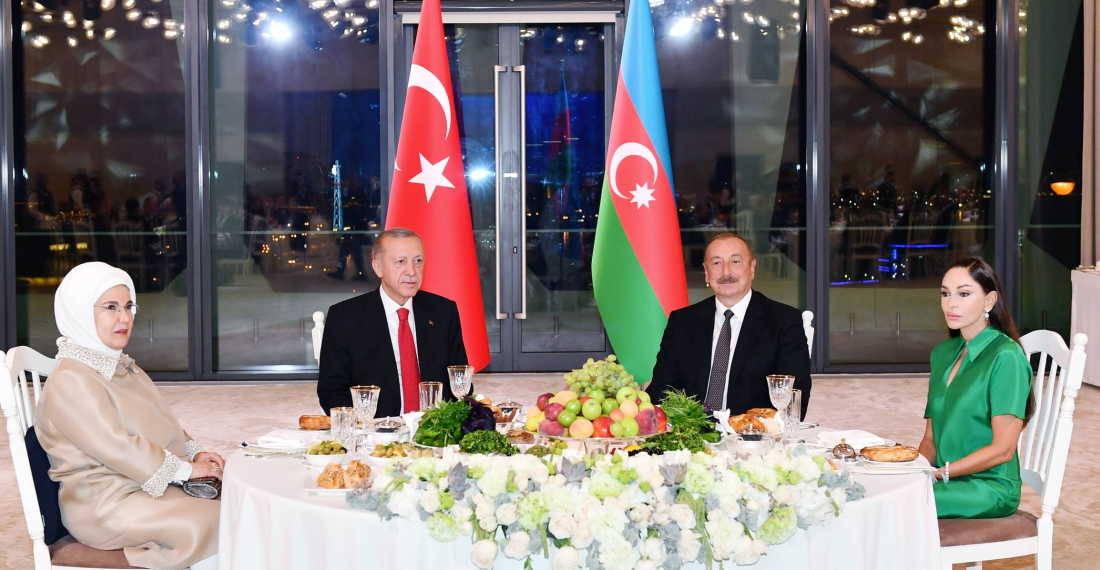The Turkish President Recep Tayyip Erdogan has embarked on his first overseas trip since his victory in the second round of the Turkish presidential elections on 28 May, visiting the self-proclaimed Turkish Republic of Northern Cyprus (TRNC) and Azerbaijan.
Erdogan, who has been in power in Turkey as either prime minister or president for some two decades, has always chosen to visit the TRNC and Azerbaijan after every election victory. Turkey is the only UN member state that recognises the TNRC, and is also a very close economic, military and cultural ally of Azerbaijan.
Having arrived in Baku on Monday evening (12 June), President Erdogan and his wife, First Lady Emine Erdogan, attended a state reception hosted by the Azerbaijani President Ilham Aliyev and his wife, First Lady Mehriban Aliyeva, at the Gulustan Palace in Baku. The reception was followed by a concert, a statement from the President of Azerbaijan's website said.
On Erdogan’s visit to Azerbaijan, The Turkish President's Communications Directorate said he would exchange views with Azerbaijani officials on Turkish-Azerbaijani relations, ways to improve them, and other cooperation opportunities during his visit to Baku. They are also expected to exchange views on current international and regional developments, the statement said.







